
Minds in Motion Remote and In-Person Workshops
School/Organization Workshops
Is your school or organization looking for curricular connecting STEM workshops for your students?
Minds in Motion offers a variety of STEM workshops both virtually and in-person for pre-K to grade 12. Thanks to specific funding, all of our workshops will be offered free of charge for Spring and Summer 2024!
To find out more about our programs or inquire about booking out of city workshops, please email: workshops@mindsucalgary.ca.

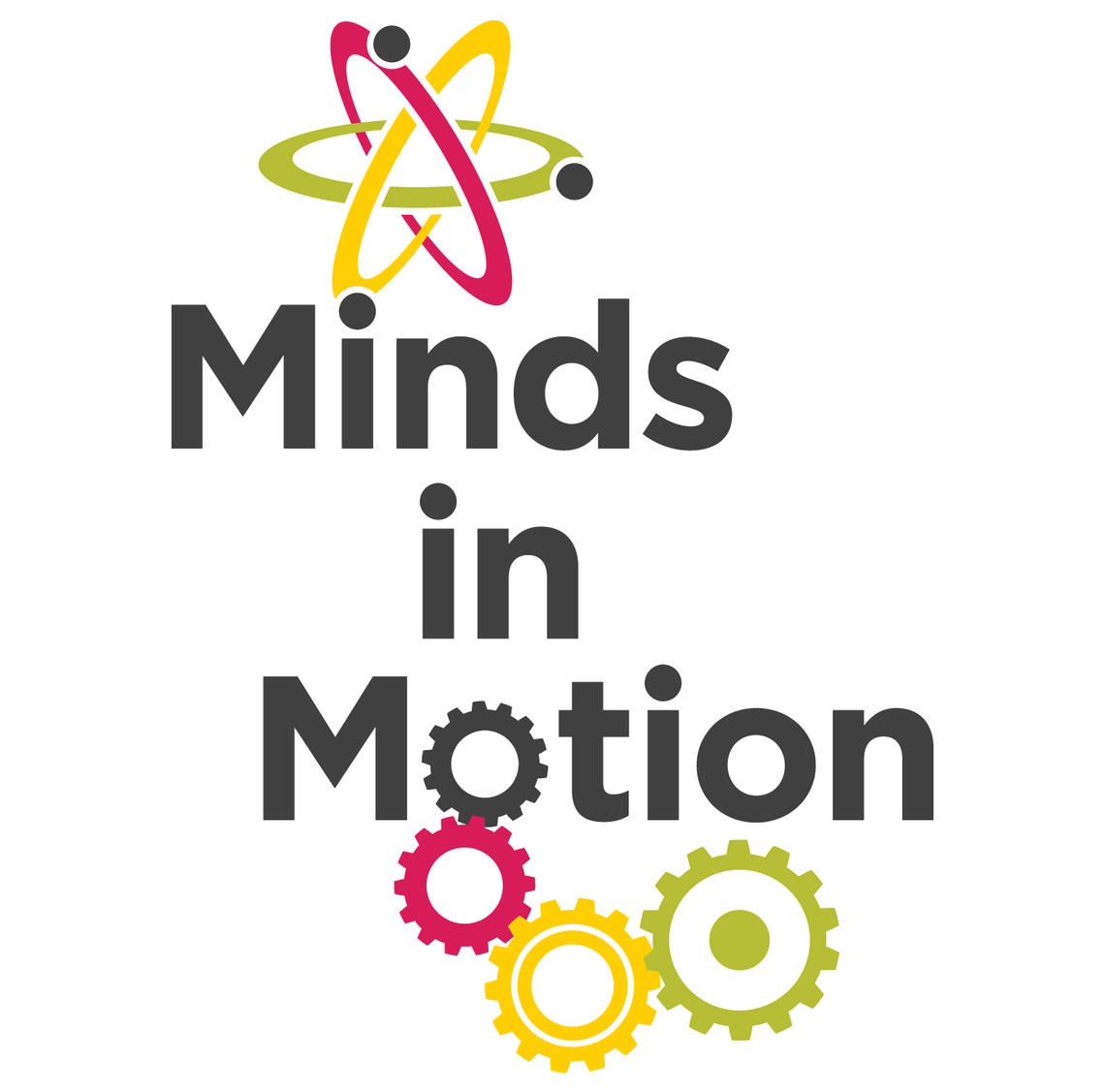

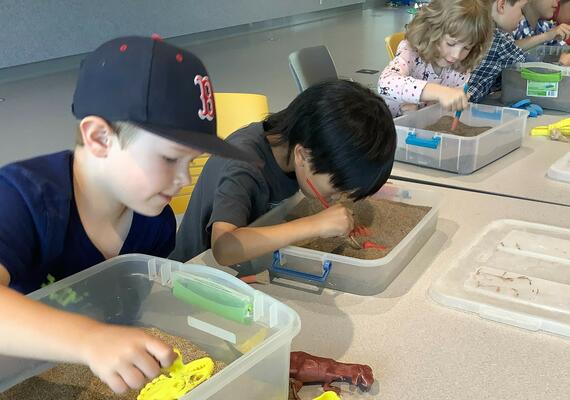
Digging for Dino’s
In-Person Only
Recommended for Pre-K to Grade 1
We invite you and your paleontologists in-training to travel back in time to learn more
about the prehistoric creatures that roamed the Earth. Students will become captivated
as they participate in this hands-on workshop that will expand their knowledge of
dinosaurs and inspire them to use their imaginations. ROAR!
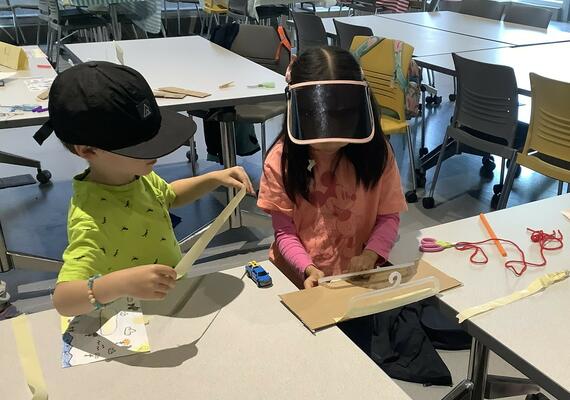
Crossing the Gap
In-Person or Virtual
Recommended for Kindergarten to Grade 3
Your class will cross the gap into civil engineering as they embark on a bridge building journey! Starting with a discussion rooted in real life examples of strong shapes, participants will apply their learning through a hands-on building challenge and test their creations for both strength and useability. This activity also provides an opportunity to explore human senses through a short material-selecting activity. With guaranteed collaboration, learning and smiles, let’s get building!

Jump Into Programming
In-Person Only
Recommended for Kindergarten to Grade 3
Requires: Projection capabilities (smart board or projector)
It’s never too early to start the journey of computational thinking and logic! Participants will follow along with our instructors on iPads while they use an icon-based drag-and-drop programming language designed for non-readers. In the end, participants will have an interactive game and an understanding of how computers
follow instructions. Let’s jump in!
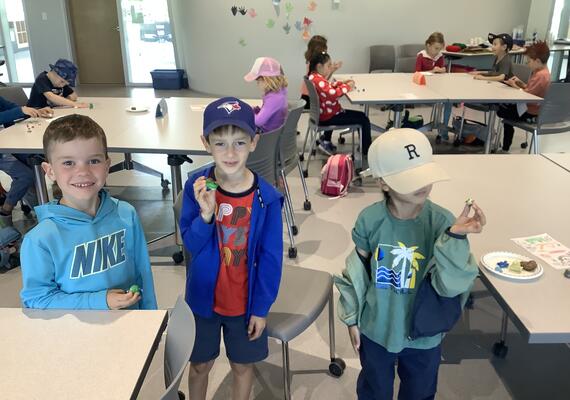
Circuit Bugs
In-Person Only
Recommended for Kindergarten to Grade 3
Spark curiosity into electrical engineering with circuit bugs! Participants will learn what
electricity is, how humans use it, and the basics of a circuit. They will then use their
knowledge to create their very own light up bug to take home! This activity will leave
your students buzzing with excitement!

Awesome Adaptations
In-Person Only
Recommended for Kindergarten to Grade 6
Ever wonder why rabbits turn white in the winter and brown in the summer? And why is it that we don't see lions and tigers in Canada but we do see bears? Join us as we explore the different habitats found in our amazing world and the awesome adaptations that plants and animals have grown to thrive in them! We will then use our brains - and a bit of electricity - to bring to life our very own adapted creatures using the marvelous powers of Makey Makeys and Scratch coding.

Ozobots and Encryption
In-Person Only
Recommended for Grade 1 to Grade 4
Your students will learn how to code using colours! Students will learn how to speak the language of computers through tiny robots and are sure to become producers, not just users of technology! Students will also begin to unravel the mystery of encryptions through current and historical examples. They will learn not only how computers protect vital information, but they'll create their own secret message that only people with the correct key can unlock!
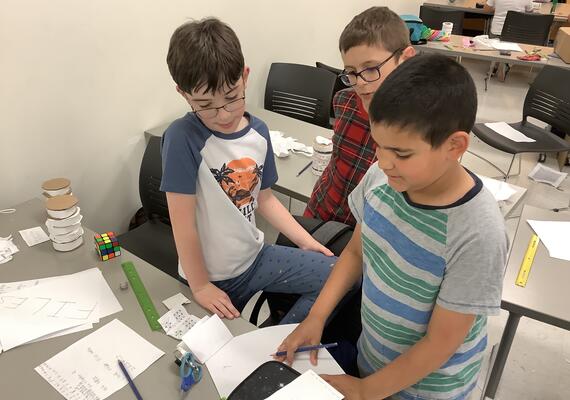
Encryption
Virtual Only
Recommended for Grade 2 to Grade 5
Your students will begin to unravel the mystery of encryptions through current and historical examples. They will learn not only how computers protect vital information, but they'll create their own secret message that only people with the correct key can unlock!

Programming with Sphero
In-Person Only
Recommended for Grade 3 to Grade 6
Requires: Projection capabilities (smart board or projector)
Allow us to inspire your students' interests in robotics and programming with our friend SphereO! Programming has never been so fun and interactive with SphereO's drop and drag interface. Students will help their new robot friend maneuver through a variety of challenges, modeling the natural world around us!
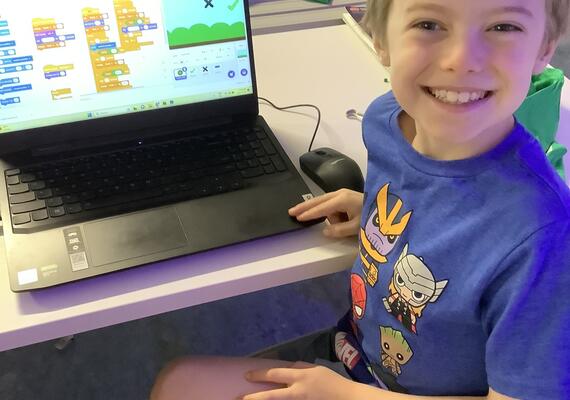
Programming with Scratch
In-Person and Virtual
Recommended for Grade 3 to Grade 6
Requires: Projection capabilities (smart board or projector)
Students will receive an introduction to coding in this workshop. Through a drag-and-drop interactive format, students will put their problem-solving and creativity skills to the test. Working through challenges, students will develop the skills needed to build their very own online games!

Magnet Mania
In-Person Only
Recommended for Grade 4 to Grade 6
Requires: Projection capabilities (smart board or projector)
Harness the magnetic force of the earth by creating your own metal detector with Micro:Bits. Participants follow along constructing a simple program with block coding, then use their program to detect magnetic materials. We then use these materials to create a take-home foosball style magnetic game!

Electrifying Electricity
In-Person Only
Recommended for Grade 4 to Grade 6
What is electricity and how is it used? Students gain insight into the electrifying world of electricity. This problem-solving workshop will focus on simple circuits, its components and applications. Your classes’ knowledge will be enhanced through an interactive building challenge. This high voltage workshop will leave the students amped-up for more!

Intro To Robotics
In-Person Only
Recommended for Grade 4 to Grade 9
Requires: Projection capabilities (smart board or projector)
What more could you ask for than electricity, computers, and robots? Students will learn about circuits and the application of robotics in society. In this two-hour workshop students will work in teams to design a robot using Lego Spike Kits. Once complete, the students will then program the robots to perform in a robot competition!
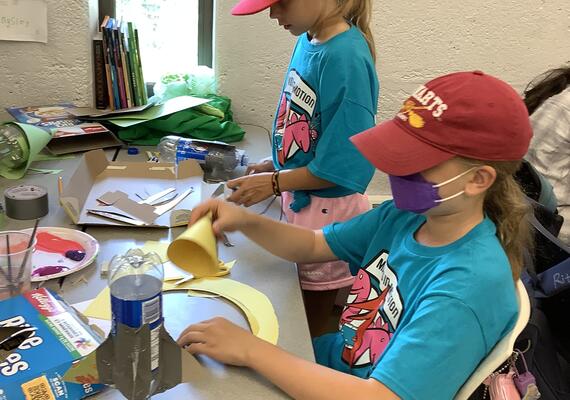
Reach for the Moon
In-Person Only
Recommended for Grade 5 to Grade 8
Requires: Each student will need a clean plastic, approximately 500mL bottle; also requires an outdoor space for testing.
Get in touch with your inner aerospace engineer as we explore the relationship between chemistry, physics, and space flight! We start with a discussion surrounding the chemistry of combustion and the forces required for lift off, then launch off on our own rocket building mission. Using the classic gas-producing reaction of baking soda and vinegar we will then test and launch our rockets into the sky!

3D Printing for Life
In-Person or Virtual
Recommended for Grade 5 to Grade 12
Requires: Projection capabilities (smart board or projector), also requires internet access
3D printing has become more accessible than ever, and with that comes exciting opportunities for accessibility and adaptability! Learn the basics of what 3D printing is, how it works and how it is used in real life industrial projects, then get hands on in creating a 3D modeled adaptable pencil grip. Instructors will walk participants step by step through how to use the software, providing tips and tricks for everyone from beginners to experts, and empowering participants to use the free software for their own projects! Are you ready to get modeling?

AI in Action
In-Person or Virtual
Recommended for Grade 6 to Grade 10
Requires: Projection capabilities (smart board or projector), also requires internet access
Is artificial intelligence going to take over the world? In this workshop students will learn how the field of artificial intelligence is growing everyday! Discover how computers are able to learn in similar ways humans do to sort through images and progressively identify new objects. Students will have the opportunity to learn how AI impacts a variety of different workforces such as agriculture, retail, healthcare and entertainment. But is there a downside to artificial intelligence? Book our “AI in Action” workshop to find out!

Coding with Micro:Bit
In-Person or Virtual
Recommended for Grade 7 to Grade 9
Requires: Projection capabilities (smart board or projector)
Take your block programming to the next level with Micro:Bit! Participants will explore loops, logic and conditional statements in order to code a game that can be played on the Micro:Bit! Instructors will lead participants through step-by-step instructions on how to use the drag-and-drop block-based language, piecing together advanced lines of code and ending with a polished game. Though experience with coding is not a necessity for this activity, this is a great project for beginners who are getting comfortable with block coding and are looking to add more complexity to their code!

What’s the Buzz?
In-Person or Virtual
Recommended for Grade 6 to Grade 12
Requires: Projection capabilities (smart board or projector)
Have your students maxed out on potato batteries and DIY flashlights? Take their circuits further with this activity! Introducing a breadboard, switch and buzzer, this activity is designed to empower participants to scale up their own electricity driven projects and spark their innovation! Together we will explore how different circuit components interact in order to make a simple, code-free morse-code generator. Let’s get wired up!
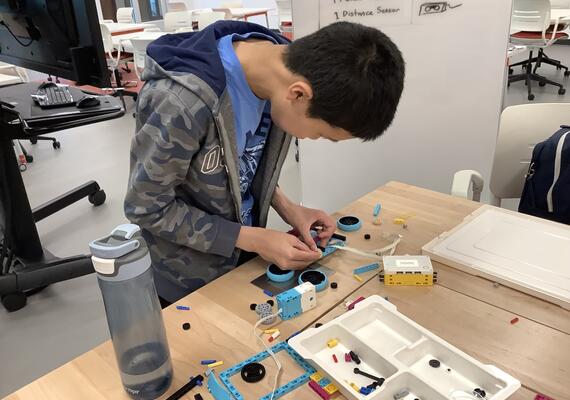
Get a Grip on Python!
In-Person Only
Recommended for Grade 7 to Grade 12
Requires: Projection capabilities (smart board or projector)
Is your group getting comfortable with block coding and ready for more of a challenge? Are they excited about using technology to help people? Then this is the activity for you! Utilizing Lego Spike educational sets, participants will build and program a gripping ‘hand’ that opens and closes in just two hours. Instructors will walk participants through writing the basic code required for the project, highlighting core features of the Python programming language, syntax requirements and opportunities to push the code further!

Advanced Breadboarding
In-Person or Virtual
Recommended for Grade 10 to Grade 12
Requires: Projection capabilities (smart board or projector)
Explore the intersection between programming and electronic engineering in this advanced electronics project! Participants will discuss what microcontrollers are, learn how they can be used, and follow along as we wire a 6-dot traditional die with LEDs, then create a ‘die-rolling’ program on Arduino microcontrollers. It’s no roll-of-the-dice! This project is guaranteed to open your student’s eyes to the exciting world of electronic creation!
